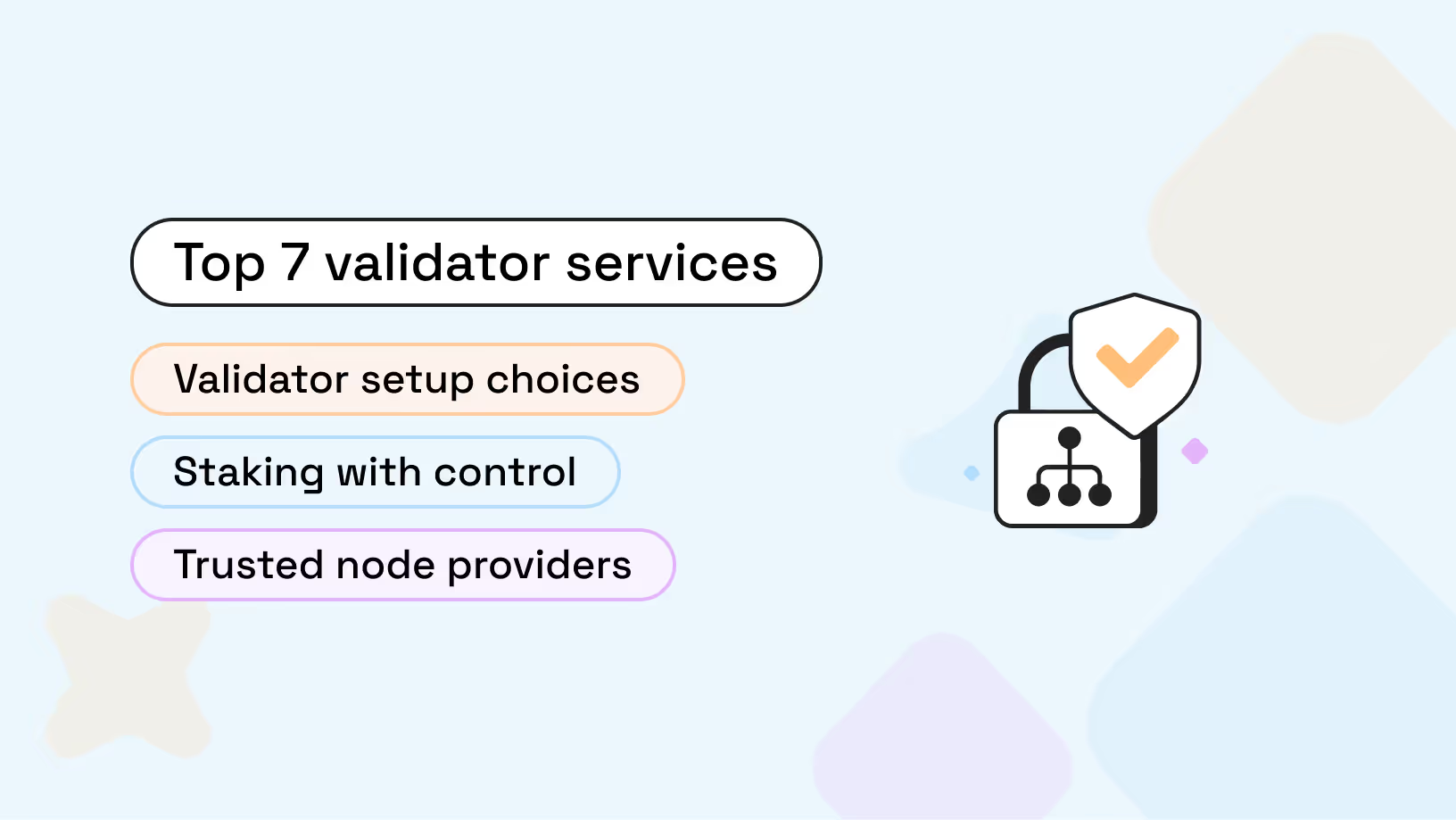
Validator nodes bring steady rewards, but only if they run without issues. Missed blocks, offline time, or key mistakes can burn profits fast. That’s why more people are turning to pro teams who do this full-time.
In 2026, validator services help solo stakers, crypto funds and platforms launch nodes the right way. They handle uptime, security and updates while clients stay in control of rewards and keys.
Some offer white-label staking for businesses. Others focus on self-hosted setups for private holders. Whatever the case, these are the providers that make it all work.
Who actually needs a validator node anyway

Validator nodes process transactions and keep proof-of-stake blockchains alive. They do the work miners used to do, but with capital instead of electricity. And they earn for it. On Ethereum alone, validators pulled in over $1.1 billion in rewards in 2024 (source: Beaconcha.in). That’s not counting MEV or tips.
You need a validator node if you want full staking rewards without splitting them with a pool. That applies to funds managing client assets, DAOs running treasury ETH, exchanges offering branded staking, even solo stakers with 32 ETH just sitting idle.
A strong real-world example is Safe{Wallet}'s integration with Kiln.
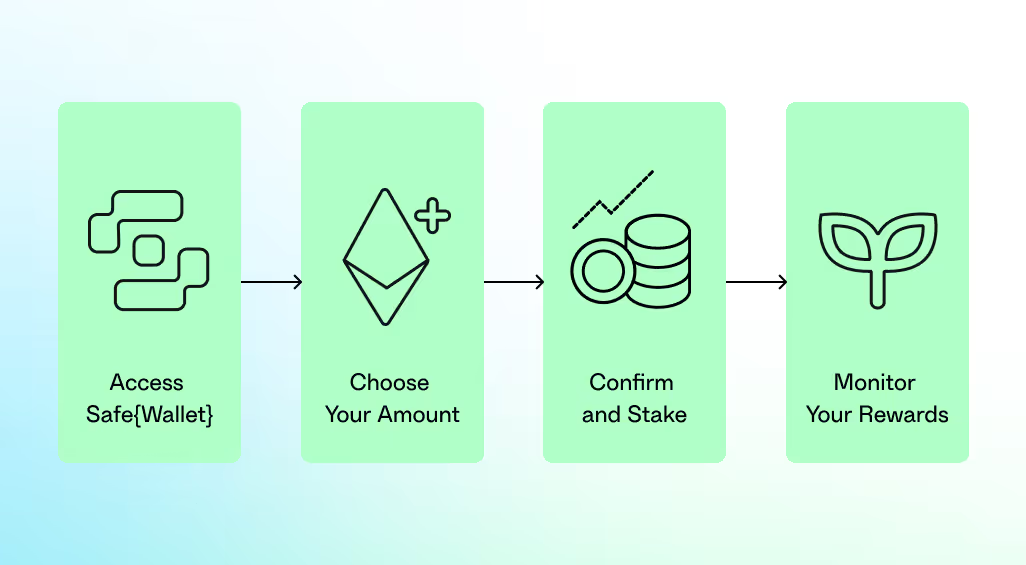
Safe users can now stake multiples of 32 ETH with Kiln Dedicated Validators while keeping full control of keys and rewards. The validators run off the infrastructure maintained by Kiln, meeting institutional security and uptime expectations.
Validator nodes are now essential infrastructure. They deliver staking rewards, maintain control of keys, and meet reliability expectations. Anyone looking to treat staking seriously needs a trusted provider behind the scenes.
Top 7 validator service providers to know in 2026
So now you know why validator nodes matter and who needs them. The next step is picking someone who can actually run one right.
These seven providers stand out in 2026. Some help solo stakers go self-hosted. Others serve platforms and funds with enterprise-grade tools.
Dysnix
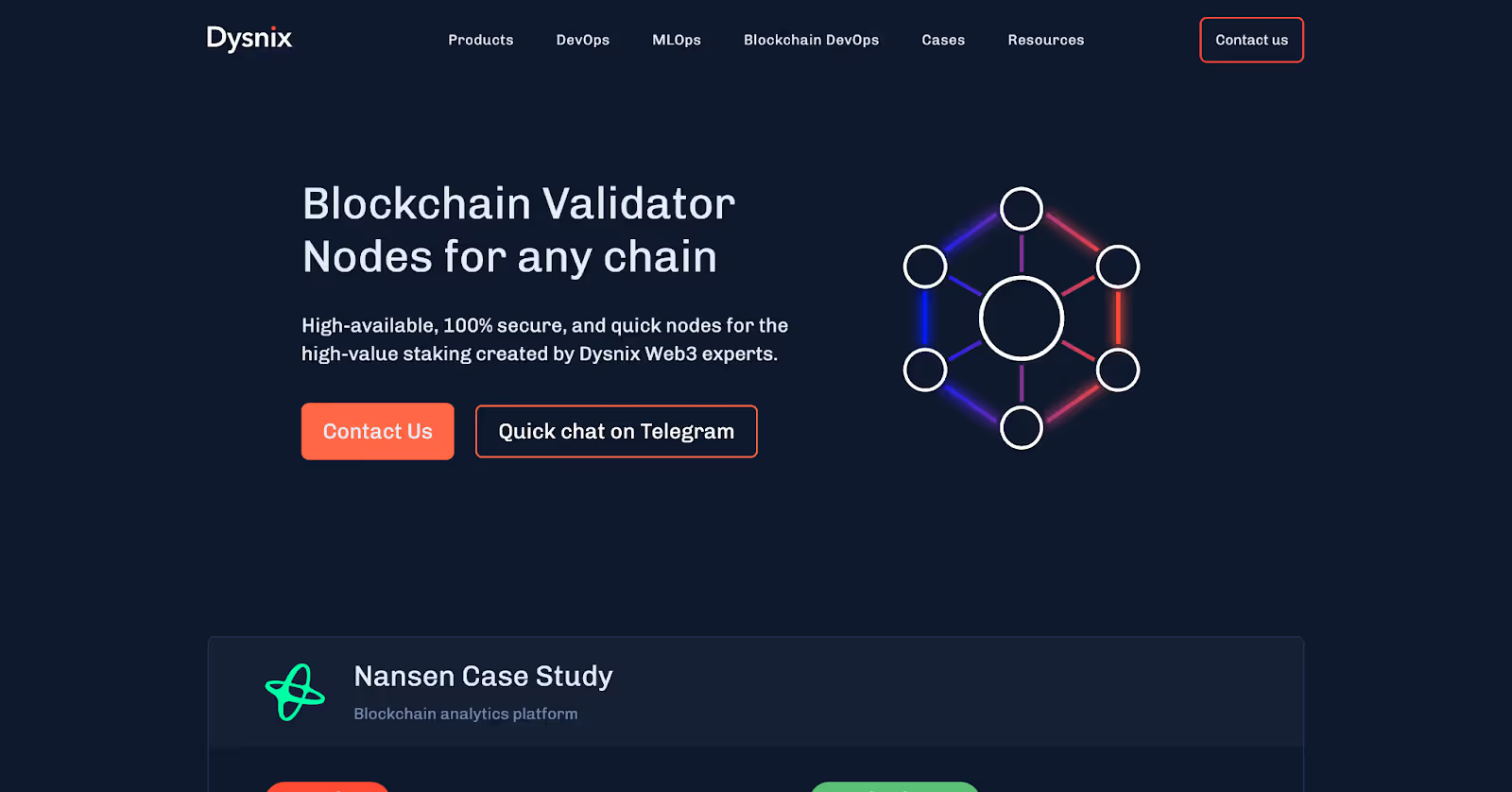
Dysnix builds validator nodes like a DevOps team would, with backups, auto-recovery and serious uptime guarantees. They don’t touch your funds or keys. Instead, they help you launch a fully self-hosted validator node with pro-level support and custom setups.
Clients can bring their own hardware or private cloud, or Dysnix can build and deploy the full validator setup using custom server configurations. Dysnix handles the rest: configuration, deployment, monitoring, 24/7 alerts and automatic failover. Everything runs under your control, and rewards go straight to your wallet.
They’ve already built for names like Nansen, who needed custom validator infrastructure across multiple networks. Dysnix shipped a setup with zero cloud lock-in, fast recovery and ongoing maintenance. In production within 24 hours.
This is ideal for staking funds, protocols, DAOs or solo stakers with serious capital and no time for DevOps headaches. If you want uptime, control and flexibility without relying on a shared service, Dysnix gets you there.
Kiln
While Dysnix is built for people who want full control on their own terms, Kiln shines in a different spot. It’s the go-to for institutions that need secure staking at scale, but without managing infrastructure themselves.
Kiln lets platforms, wallets and custodians offer staking through dedicated validator nodes. Clients keep control of rewards and keys, while Kiln runs the node fleet in the background. Their system is API-first, SOC 2 Type II certified, and built for large-scale deployment. You can spin up validators in under 24 hours and monitor them with full dashboards and MEV tracking.
They’ve already powered Ethereum staking for Safe Wallet, giving users the ability to launch dedicated 32 ETH validators directly from a multisig. Same for other clients who want branded staking without touching DevOps.
Kiln doesn’t offer full self-hosted flexibility like Dysnix. But if you want to launch 100+ validators, plug staking into your platform, or go live with a white-labeled validator setup, they’re one of the best in the business.
Zeeve
Zeeve takes validator infrastructure and turns it into something you can launch in minutes, even across dozens of networks. They focus on automation, scale and speed, which makes them a favorite for platforms and protocols that need quick deployment without giving up control.
With Zeeve, you can launch a validator node for Ethereum, Polygon, Solana, or even a custom chain through their no-code dashboard or API. The setup is non-custodial. Your keys, your rewards. They manage the DevOps side: uptime, updates, failover, and monitoring.
Zeeve also supports white-label staking, so projects can run branded validator nodes, set custom commissions, and invite their own delegators. It’s built for businesses that need validators running in production fast, with minimal risk and full visibility.
The platform supports over 35 blockchains, offers multi-cloud deployment, and comes with full analytics. It’s less about handcrafted setups and more about efficiency and control at scale.
Blockdaemon
Blockdaemon is the infrastructure partner big institutions call when staking needs to tick every compliance box. They offer full-stack validator services with SOC 2, ISO 27001, slashing insurance, and integration-ready APIs.
Their focus is enterprise staking. Think custodians, exchanges, banks and funds that need secure, white-labeled validators with audit trails and legal-grade uptime. Clients don’t run anything themselves.Blockdaemon handles hosting, monitoring, security and recovery across more than 50 chains worldwide.
They also offer Distributed Validator Technology (DVT) powered by Obol, which helps reduce single points of failure by spreading validator responsibilities across multiple parties. That’s a big deal for funds with serious capital on the line.
Blockdaemon doesn’t sell flexibility to solo stakers or small teams. But for large players who need risk-managed infrastructure that speaks the language of compliance, they’re hard to beat.
Everstake
Everstake runs validators like a public utility for Web3. They’re one of the largest operators by volume, with infrastructure across 70+ blockchains and hundreds of thousands of delegators. But they also work with institutions, helping them launch custom staking setups and branded validator nodes.
Their model is non-custodial, with clients keeping key control and reward flow. Everstake handles the backend: deployment, security, monitoring and upgrades — all built on bare-metal servers spread across global data centers. This isn’t cloud clickware. It’s physical infrastructure with high uptime and low latency.
They’re especially strong in ecosystems like Solana and Polkadot, where they’ve been active since early testnets. They also support staking initiatives through tools like the Validator Decentralization Score, helping improve stake distribution across networks.
Everstake works with DAOs, platforms and funds that want their own validator identity without having to build from scratch. And with recent involvement in Northstake’s ETH validator marketplace, they’re stepping into the next phase: validator liquidity.
Figment
Figment doesn’t try to be everywhere. They focus on doing a few things very well and running institutional validator infrastructure is one of them. With over $15 billion in assets staked across 50+ networks, they’re one of the most trusted names in the space.
Their offering is built for large-scale clients like custodians, funds and exchanges. Everything is non-custodial: clients hold their keys, rewards flow directly to wallets, and Figment runs the validator fleet behind the scenes. Performance is high and risk is low. They’ve had zero slashing incidents across Ethereum validators.
Clients also get access to a full data suite. That includes dashboards, reward breakdowns, compliance reports and API integrations. If your legal or finance team needs to see it, it’s there.
Figment doesn’t aim for white-label convenience or self-serve interfaces. They’re for clients who need validator infrastructure that checks every compliance and operational box and expect answers when something goes wrong at 2 a.m.
P2P.org
P2P.org sits right in the middle — technical enough for serious validators, but flexible enough for wallets, funds and platforms. They help clients integrate staking directly into their products with clean APIs, real-time dashboards and zero-custody setups.
They’ve been in the game since 2018 and now support 40+ blockchains with over $10 billion in staked assets. Their validators power staking inside Ledger Live, among others — a strong vote of confidence from one of the most security-focused teams in crypto.
P2P.org gives clients full control over keys and reward flows. You can track everything with their internal tool, P2P Hub, or plug directly into staking logic via their API. Uptime? 99.99%. Slashing? None on Ethereum since launch.
They’re a great fit for teams who want to plug staking into a product, offer branded validator options, or just stop worrying about infrastructure while staying in control.
Validator infrastructure is no longer a side detail
People don’t launch validator nodes just to tick boxes. They do it to protect rewards, own the process, and avoid depending on others. But that only works if the setup is solid.
In 2026, choosing the right validator partner means more than uptime. It’s about who helps you stay sovereign, secure and independent, whether you're staking 32 ETH or scaling a full platform. The teams in this article do just that.
If you’re ready to launch with confidence instead of guessing your way through it, talk to someone who builds validators for a living.
Explore your validator setup with a team that gets it.

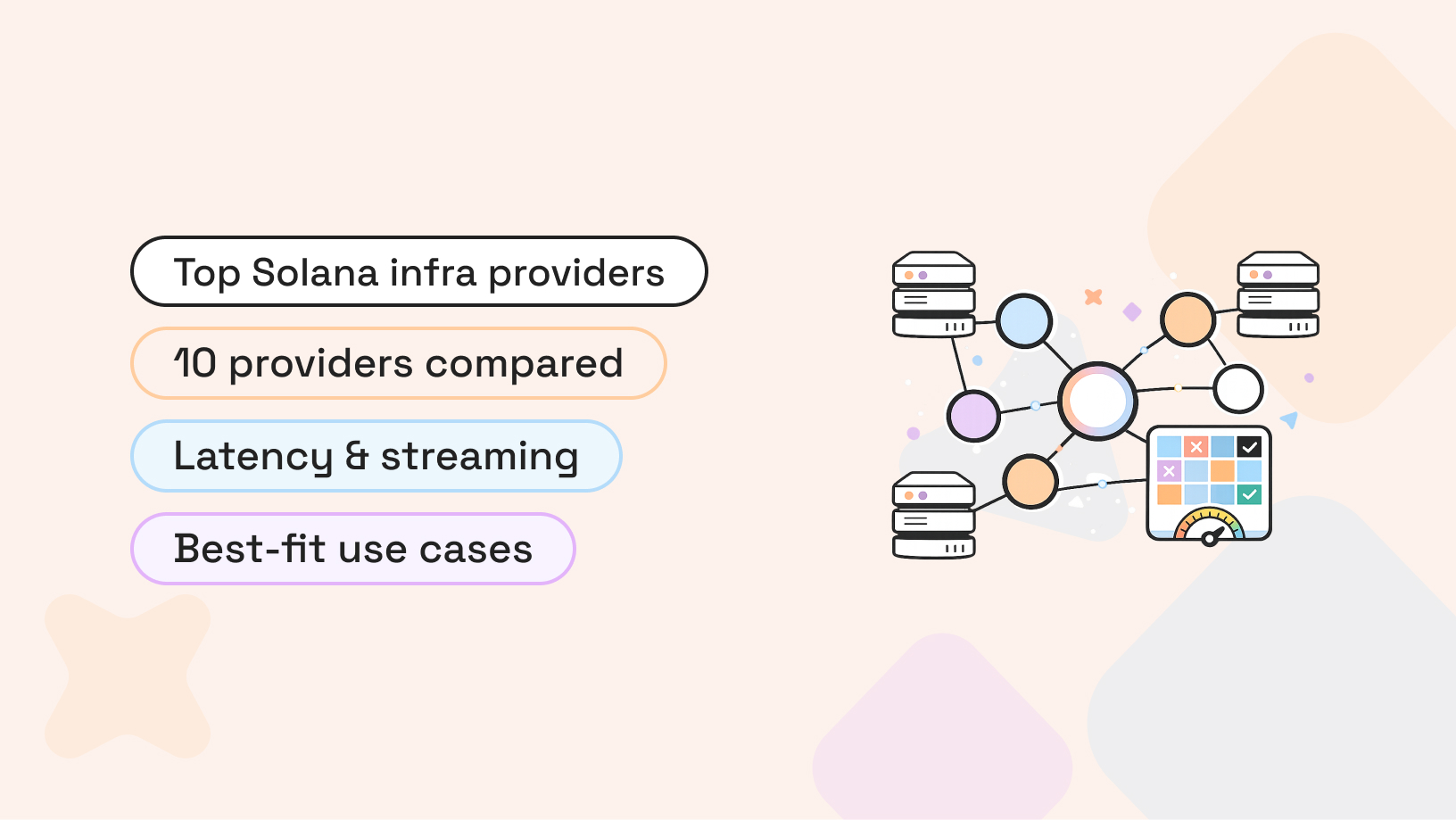



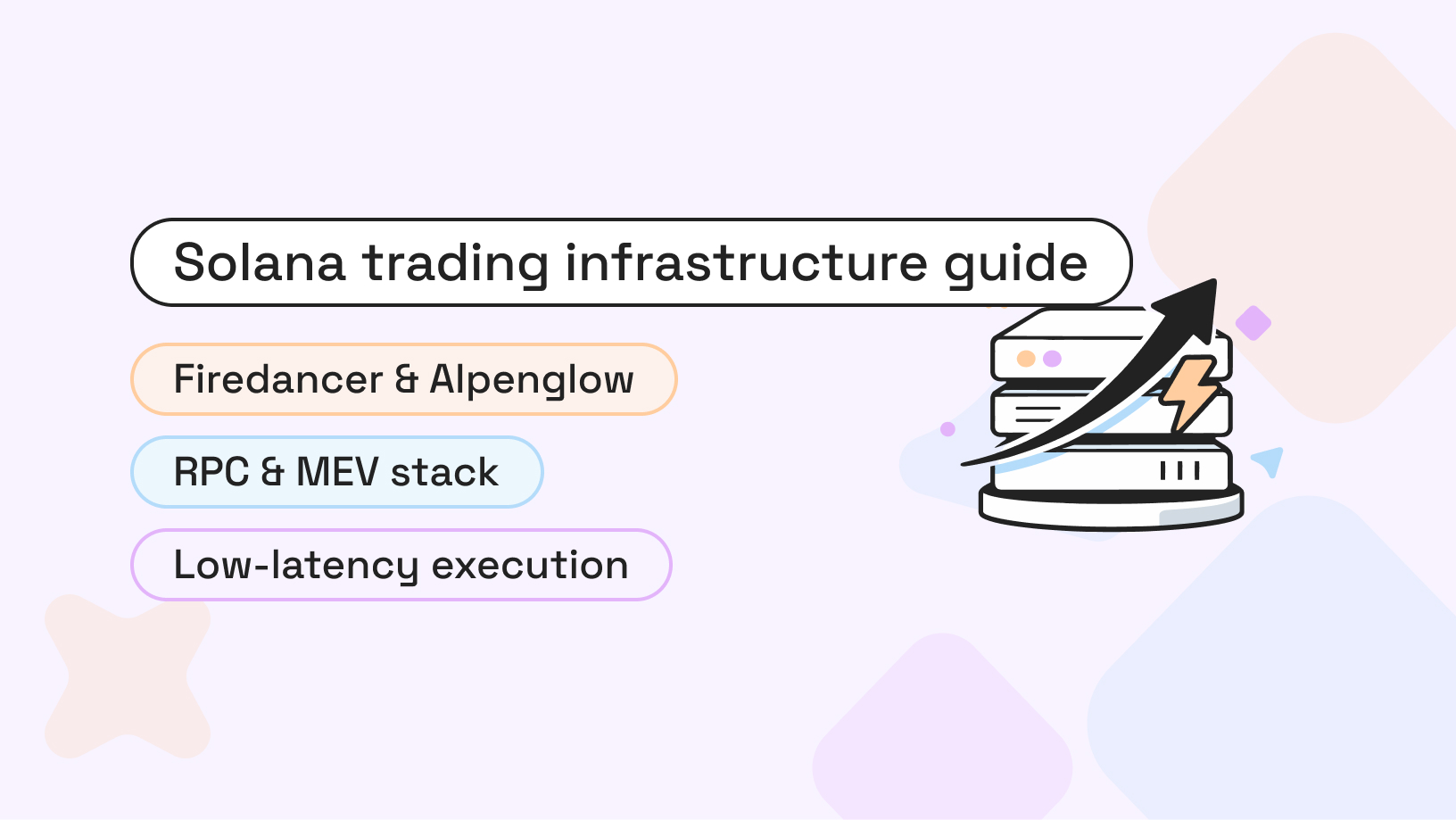













.svg)
.svg)
.svg)

